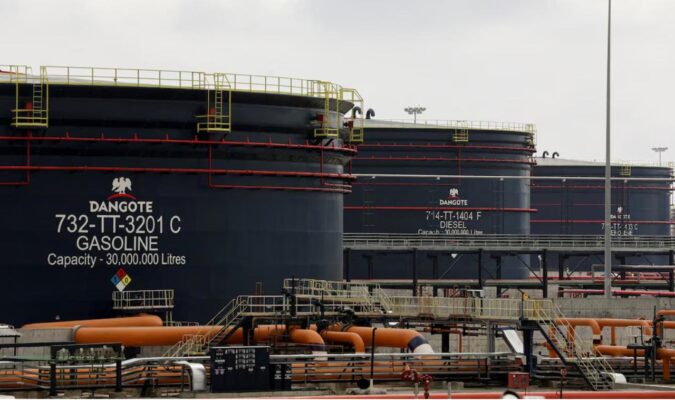In 2024, the Dangote Petroleum Refinery retained 13% of Nigeria’s crude oil exports for domestic use, a significant jump from just 2% in 2023. This development increased domestic supply but simultaneously reduced crude exports to traditional markets such as Europe.
The shift also highlights the refinery’s growing role in reshaping Nigeria’s oil dynamics and its broader economic impact.
The refinery, with a capacity of 650,000 barrels per day, began processing substantial volumes of crude oil domestically, addressing fuel shortages and reducing dependence on refined fuel imports.
However, challenges arose as the Nigerian National Petroleum Company Limited (NNPCL) failed to supply the refinery with sufficient crude oil. Consequently, Nigeria imported 47,000 barrels per day of U.S. West Texas Intermediate (WTI) oil in 2024 to meet the refinery’s demands—a move deemed unusual for a major oil-exporting nation.
- Advertisement -
This reliance on imported crude further strains Nigeria’s economy. Reduced crude exports, particularly to Europe, diminish the nation’s foreign exchange earnings. Crude oil accounts for over 80% of Nigeria’s export revenue, and any decline directly impacts government revenues, public spending, and economic stability.
Additionally, NNPCL’s debt obligations from crude-for-loan agreements, which tie future oil production to financial commitments, remain a pressing burden, with repayments likely continuing until 2029.
Globally, the reshuffling of oil trade routes, driven by sanctions on Russia and Iran, conflicts in Ukraine and the Middle East, and weak demand growth, further compounds the issue. These geopolitical factors have disrupted traditional markets for Nigerian crude, leaving limited alternatives for export growth.
While the Dangote Refinery’s operations bolster local fuel availability and position Nigeria as a potential exporter of refined petroleum products, the reduction in crude exports poses short-term challenges. Experts emphasize the need for improved coordination between NNPCL and domestic refineries to maximize local crude utilization while safeguarding export revenues. Without such measures, the economic ripple effects of reduced exports may hinder Nigeria’s recovery from ongoing fiscal challenges.










